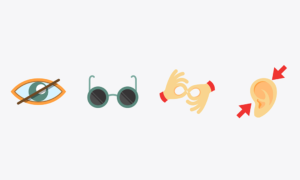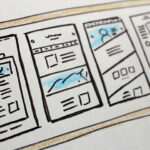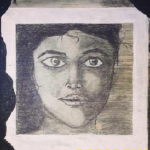By Leonardo S.A. Cabral1, Rafael J. P. Damaceno2, Solange Santos2, Gustavo Fonseca2 e Alex Mendonça2

Image: macrovector.
As part of the alignment with open science research communication practices, the SciELO Program initiated an interdisciplinary work plan aimed at promoting accessibility to the SciELO Network products and web services.
This is a long-standing concern of the SciELO Program. Since the second half of the 1990s, we have dedicated ourselves to democratizing access to scientific output communicated through nationally published journals.
However, along this trajectory, persons with physical, visual, hearing, intellectual, deaf blindness or multiple disabilities, who present or not with Autism Spectrum Disorder (ASD), have entered the scientific academic communities and reported significant difficulties in accessing their outputs.
Among other aspects, our users with disabilities and/or the elderly, have indicated some technological inadequacies in the layout settings of the websites, collections and journals of the SciELO Network, and in the search fields in: their dispositions, file formats (figures, graphs, tables), font types and sizes, and even in the structures of academic-scientific texts.
This scenario made us aware of the fact that promoting open science and open access is not necessarily synonymous with promoting accessibility. If we do not pay attention to this, and overcome attitudinal, technological, communicational, and programmatic barriers, we will be legitimizing the violation of the individual rights of citizens of different societies on a daily basis to access what has been developed by scientific communities.
It is imperative, therefore, that we dialogue with the precepts of the International Convention on the Rights of Persons with Disabilities (UNESCO, 2006), the Marrakesh Treaty (2013), the 2030 Agenda for Sustainable Development (UN, 2015) and the parameters determined by the Web Accessibility Initiative (WAI/W3C). The theoretical-scientific and technological development related to the accessibility of information in virtual environments would then gain more emphasis currently by the academic and political-social communities.
Motivated by these premises and the constant requests from our users with and without disabilities, since May 15, 2020, the SciELO Program, in cooperation with the Identities, Disabilities, Education & Accessibility Research Group (Grupo de Pesquisa Identidades, Deficiências, Educação & Acessibilidade) at the Universidade Federal de São Carlos (GP-IDEA/UFSCar), have been discussing, from the perspective of accessibility, possible short, medium, and long term paths for reviewing the policies and practices of publication and access of products and services associated with journals and articles.
Improving accessibility as a key feature of the SciELO Publication Model will require the proactive participation of journal editors due to the gradual adjustments in submission guidelines, structures and content of articles.
Besides publishing the guidelines on a quarterly basis the Grupo de Trabalho Interdisciplinar para a Acessibilidade SciELO (GTI-Acessibilidade SciELO), as a collective responsibility, the SciELO in Perspective blog will soon publish a communication and dialogue channel on the topic.
Notes
1. Universidade Federal de São Carlos (UFSCar).
2. Scientific Electronic Library Online (SciELO).
References
ORGANIZAÇÃO DAS NAÇÕES UNIDAS. Transformando Nosso Mundo: A Agenda 2030 para o desenvolvimento sustentável [online]. Organização das Nações Unidas. 2015 [viewed in 7 August 2020]. Available from: http://www.itamaraty.gov.br/images/ed_desenvsust/Agenda2030completoportugus12fev2016.pdf
UNITED NATIONS EDUCATIONAL, SCIENTIFIC AND CULTURAL ORGANIZATION. Convention on the Rights of Persons with Disabilities (CRPD) [online]. United Nations. 2006 [viewed in 7 August 2020]. Available from: https://www.un.org/development/desa/disabilities/convention-on-the-rights-of-persons-with-disabilities.html
UNITED NATIONS. Doha International Conference on Disability and Development 2019 [online]. United Nations. 2019 [viewed in 7 August 2020]. Available from: https://www.un.org/development/desa/disabilities/news/dspd/doha-conference-disability.html
UNITED NATIONS. World social report 2020: inequality in a rapidly changing world [online]. United Nations. 2020 [viewed in 7 August 2020]. Available from: https://www.un.org/development/desa/dspd/world-social-report/2020-2.html
External links
2030 Agenda for Sustainable Development <https://sdgs.un.org/>
Acessibilidade Digital – GP-IDEA <https://www.idea.ufscar.br/materiais/acessibilidade/fontes-sobre-acessibilidade>
Grupo de Pesquisa Identidades, Deficiências, Educação & Acessibilidade <https://www.idea.ufscar.br/>
Marrakesh Treaty <https://www.wipo.int/dc2013/en/>
Web Accessibility Initiative <https://www.w3.org/WAI/>
Translated from the original in Portuguese by Lillian Nassi-Calò.
Como citar este post [ISO 690/2010]:








![Lack of sustainability plans for preprint services risks their potential to improve science [Originally published in the LSE Impact blog in March/2023] Fotografia de um servidor de rede.](https://blog.scielo.org/en/wp-content/uploads/sites/2/2023/03/taylor-vick-M5tzZtFCOfs-unsplash_thumb.jpg)








Pingback: SciELO Network and Accessibility: Emphasis n Policies, Products And Services | LJ infoDOCKET
Pingback: Day in Review (August 10–14, 2020) - Association of Research Libraries